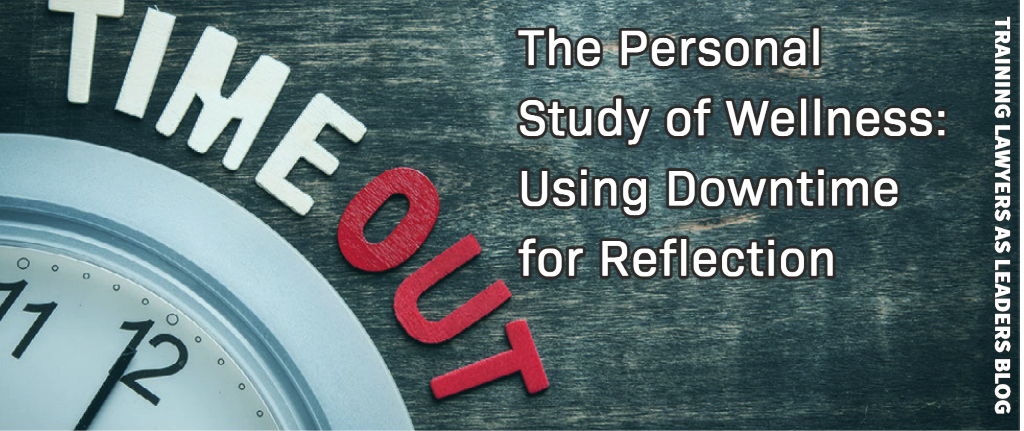
For all of us, being our best selves takes time and effort to care for our whole being. With the exhausting pressures in our professional lives, are we paying attention to our personal well-being? The statistics tell us that as a profession we are not. Let’s help our students do and be better.
As law schools identify appropriate placement for conversations around wellness, leadership courses or programs provide a perfect opportunity. We recognized the importance of the topic and devoted chapter 11 of our textbook, Fundamentals of Lawyer Leadership, to “The Importance of Well-Being: Thriving in the Legal Profession.” At Baylor Law, discussions of the importance of personal wellness are woven into every offering of the leadership course. Strategies for being more intentional with wellness practices are presented in several class sessions. Through journal prompts, students are encouraged to consider how they might best plan their future with a design for finding harmony of work and life in the practice of law.
I do believe in practicing what I preach. Yet, the fast pace of life and work often keeps me from focusing on this topic for myself. What am I doing to make sure that I am happy? This Time article discusses the daily habits of happiness experts, with the usual suspects: good sleep, exercise, eating healthy, spending time in nature, engaging in a hobby, and praying, to name a few. But one focus of the article, “is happiness a choice?”, I found particularly interesting. One expert, Tal Ben-Shahar, co-founder of the online Happiness Studies Academy, said, “part of it is a choice, part of it is innate. . . . And the part that is a choice is the choice to work hard at it.”
This Spring Break, Jeanine and I decided to work at it. We took some rare downtime to discuss what makes us happy. Some of the questions discussed were, “what activities do we enjoy?”, “How can we prioritize them?”, “how do we want to spend our time?”, “where do we want to spend our time?”, “Who do we want to spend it with?” The conversation was enlightening. Not because the answers were surprising, but because we do not go through this exercise often enough.
With trees budding and green grass popping up around us, I am reminded that spring is a time of new growth. What a perfect time to pause and reflect on your own well-being! I hope that your Spring Break allows you some space to consider your personal wellness journey.
Gratefully,
– Stephen





